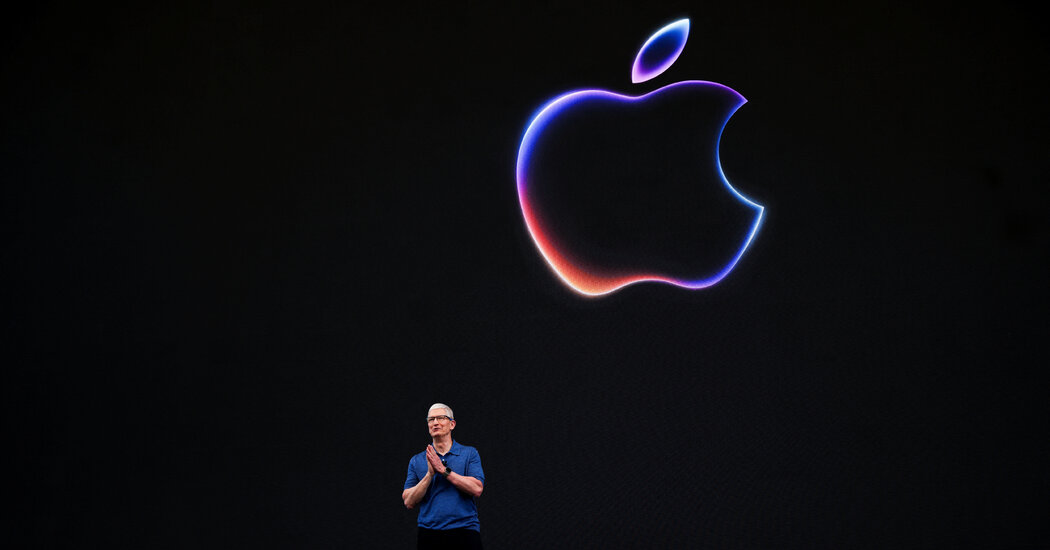
The iPhone maker, which has been slow to embrace artificial intelligence, will weave it into the technology that runs on billions of devices.
Nearly two years after OpenAI ignited a race to add generative artificial intelligence into products, Apple jumped into the competition on Monday, as it revealed plans to bring the technology to more than a billion iPhone users around the world.
During a two-hour presentation from its futuristic Silicon Valley campus, Apple said that it would be using generative A.I. to power what it is calling Apple Intelligence. The system will prioritize messages and notifications and will offer writing tools that are capable of proofreading and suggesting what users have written in emails, notes or text. It also will result in a major upgrade for Siri, Apple’s virtual assistant.
Apple’s plans to offer A.I. in its iPhones represents the next step in bringing artificial intelligence into the consumer mainstream. Apple, the marquee name of Silicon Valley, could do more than any other company to add credibility to a technology that has more than a few critics, who worry that it is mistake-prone and could add to the flood of misinformation already on the internet.
Apple’s new A.I. features could also help calm concerns that the iPhone maker had slipped behind its biggest rivals in the tech industry’s embrace of artificial intelligence. The value of other tech companies, like Microsoft and Nvidia, has ballooned because of their aggressive A.I. plans. Earlier this year, Microsoft dethroned Apple as the most valuable technology company in the world.
While introducing its new A.I., Apple emphasized how it planned to integrate the technology into its products with privacy in mind. The company said that the technology, which can answer questions, create images and write software code, would perform sensitive tasks. It showed how the system would be able to automatically determine if a rescheduled meeting time would complicate plans to attend a child’s theater performance.
It said that the computer processing would be done on an iPhone rather than in data centers, where personal information has a greater risk of being compromised. For complex requests that require more computing power, it has created a cloud network with Apple semiconductors that, it said, is more private because it’s not stored or accessible, even by Apple.
Thank you for your patience while we verify access. If you are in Reader mode please exit and log into your Times account, or subscribe for all of The Times.
Thank you for your patience while we verify access.
Already a subscriber? Log in.
Want all of The Times? Subscribe.